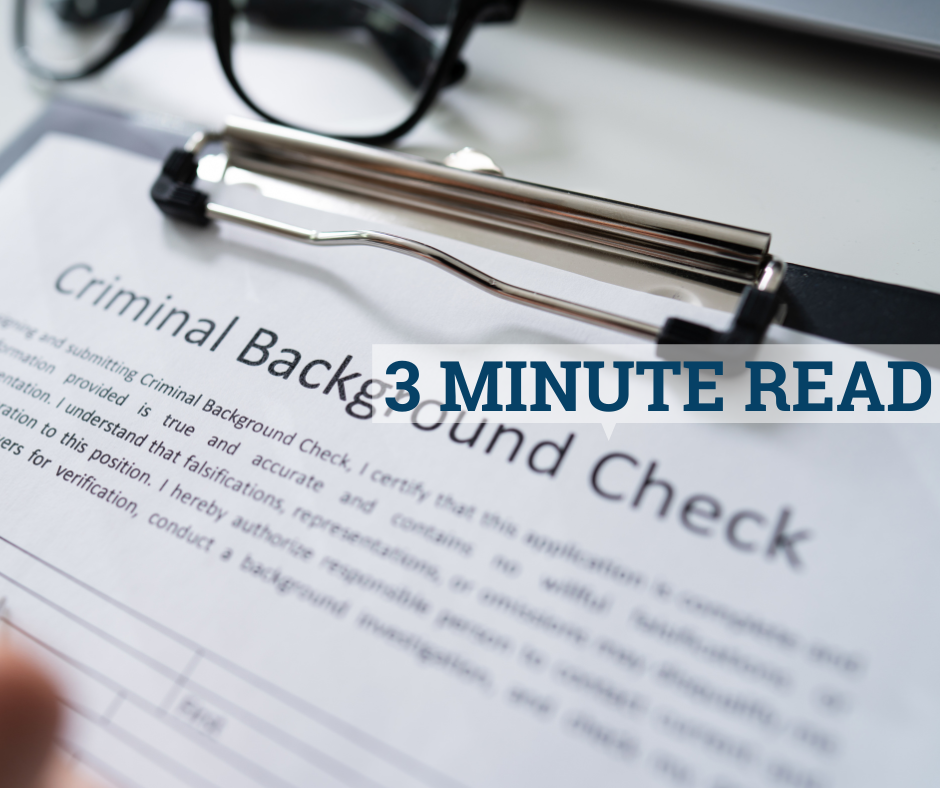
In recent years, the United States has seen the introduction of federal and state clean slate laws and initiatives to address the challenges faced by individuals with criminal records. These laws, such as the Clean Slate Act of 2023 and the Fresh Start Act, can significantly impact millions of Americans by providing a pathway to clear federal records and supporting the implementation of state-level record clearance laws.
While Pennsylvania was the first state to pass a clean slate law in 2018, there have been other states that have passed a clean slate law, including:
- California
- Colorado
- Connecticut
- Delaware
- Michigan
- Minnesota
- New Jersey
- New York
- Oklahoma
- Utah
- Virginia
The Need For Clean Slate Laws
According to Jason Cooper, Vice President of Programs for The Clean Slate Initiative, approximately one in three people in the U.S. – about 70 million to 100 million individuals – have some form of record, with majority of these records being for arrests, acquittals, and nonviolent misdemeanors. The consequences of having a criminal record extend beyond the individual, as nearly half of U.S. children have at least one parent with a criminal record, leading to negative impacts on school performance and future employment opportunities.
Understanding Clean Slate Laws
While most states allow for the petitioning of expungement or sealing of certain types of criminal records, the process is often complex, expensive, and poorly understood by those who are eligible. As a result, only a fraction of eligible individuals obtain relief through this process. Clean slate laws offer a solution by automating the record-clearing process once individuals remain crime-free for a specified period of time, providing a more accessible and equitable path to clearing their records.
An example of the practical application of clean slate laws is New York’s Clean Slate Act, which calls for the sealing of eligible misdemeanor convictions after three years and eligible felony convictions after eight years from the satisfaction of a sentence. However, certain serious felonies and convictions requiring registration as a sex offender are not eligible for sealing.
Clean Slate Laws Vs. Ban-The-Box Laws
It’s essential to distinguish clean slate laws from ban-the-box laws, which are aimed at preventing employers from asking about an individual’s criminal history during the hiring process. While the ban-the-box laws focus on the hiring process, clean slate laws primarily target the sealing of certain criminal records, effectively wiping the slate clean for individuals who have served their sentences and satisfied the waiting periods.
Compliance Challenges
Compliance challenges may arise with the implementation of clean slate laws, particularly for employers who operate in multiple states. The combination of state laws and the potential for candidates to disclose sealed records out of caution present complexities for employers. Navigating these challenges requires careful consideration of local requirements, especially in the context of remote work and multistate hiring activities.
Navigating Compliance With Clean Slate Laws
Clean slate laws have the potential to positively impact millions of Americans by providing a more accessible pathway to clear criminal records, thereby improving opportunities for individuals with past convictions. However, successfully implementing these laws will require a concerted effort to navigate compliance challenges and ensure equitable treatment of individuals with criminal records in the workforce.
Have you ever considered partnering with a professional employer organization (PEO)? PEOs offer valuable expertise in compliance with evolving legislation, including clean slate laws, and therefore assist small business owners in ensuring fair and equal employment practices. At GMS, our HR experts proactively address the implications of clean slate laws and foster inclusive hiring practices. Contact our experts today!